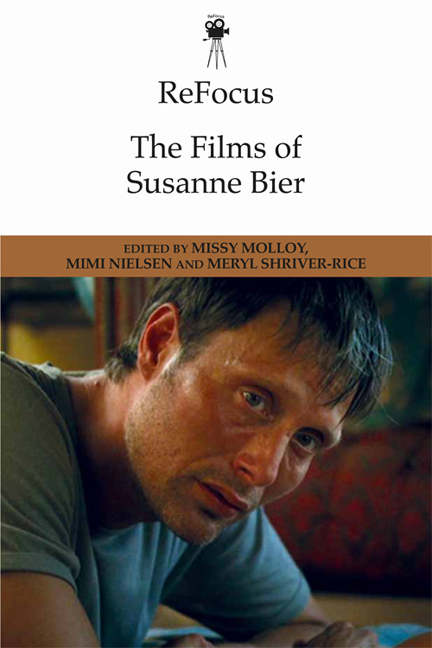Book contents
- Frontmatter
- Contents
- List of Figures
- Notes on Contributors
- Foreword
- Introduction: Susanne Bier's Boundary-Crossing Screen Authorship
- Part 1 Generic and Industrial Fluidity
- Part 2 Negotiating Identity
- Part 3 Authorship and Aesthetics
- Part 4 Transnational Reach
- Postscript: A Conversation with Susanne Bier
- Filmography of Susanne Bier
- Acknowledgments
- Index
10 - The Truth is in the Eyes: Susanne Bier's Use of Close-ups in The Night Manager
Published online by Cambridge University Press: 01 May 2021
- Frontmatter
- Contents
- List of Figures
- Notes on Contributors
- Foreword
- Introduction: Susanne Bier's Boundary-Crossing Screen Authorship
- Part 1 Generic and Industrial Fluidity
- Part 2 Negotiating Identity
- Part 3 Authorship and Aesthetics
- Part 4 Transnational Reach
- Postscript: A Conversation with Susanne Bier
- Filmography of Susanne Bier
- Acknowledgments
- Index
Summary
The Emmy-winning miniseries The Night Manager (2016) marks the first time that the Oscar-winning Danish director Susanne Bier worked in serial television drama. The series, which was co-produced by the BBC and the American cable channel AMC, is based on an espionage novel from 1993 by acclaimed British author John le Carré. Le Carré's sons specifically chose Bier to direct this prestigious adaptation by screenwriter David Farr. In an interview published by The Guardian at the time of the series’ release, Bier describes how she was particularly attracted to the material because she wanted to explore “the double depths of the characters, the space between words that makes le Carré's extraordinarily detailed novels so challenging to the time constraints of the big screen” (Bier 2016).
The story of The Night Manager is one of questionable loyalties and outright deceit. Everyone has secrets, which compels the characters to constantly search for signs of what is going on inside the minds of others. This chapter will analyze the series’ remarkable array of close-ups, of characters’ “eye duels” and of particular character's eyes in moments critical to the narrative, as representations of Bier's stated desire to explore character depth and the spaces between utterances. To this end, I will draw on theoretical discussions of the cinematic close-up and studies of stylistic traits in Bier's earlier work.
This chapter highlights examples of how Bier utilizes extreme close-ups during dramatic as well as intimate moments, efficiently employing one of her signature stylistic tools from her arthouse feature films while offering a high-end genre production to mainstream viewers. Bier has stated that with The Night Manager she wanted to make viewers feel “intrigued or slightly mystified by what's going on even though they know more than everyone in the story” (Bier quoted in Thompson 2016). Moreover, she wanted the audience to “feel like spies, peeping in through doors and windows, catching the characters unaware in moments of vulnerability,” much like the magic trick that the miniseries’ villain, Richard Roper, performs at his son's birthday party, where the children have to closely watch the cups to find the hidden ball (Bier 2016).
- Type
- Chapter
- Information
- ReFocus: The Films of Susanne Bier , pp. 187 - 204Publisher: Edinburgh University PressPrint publication year: 2018



